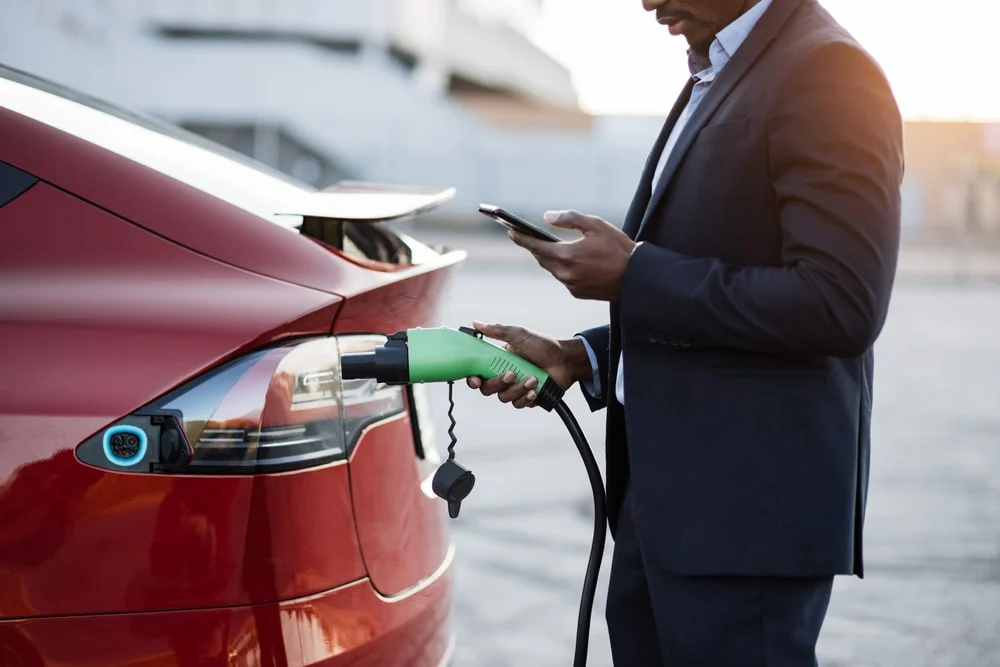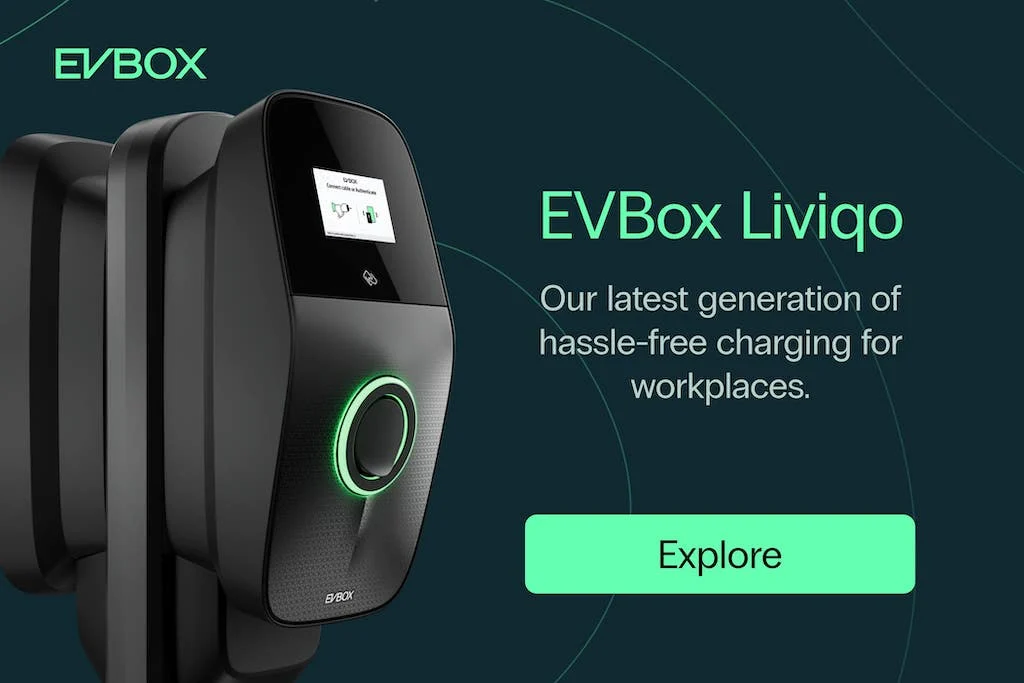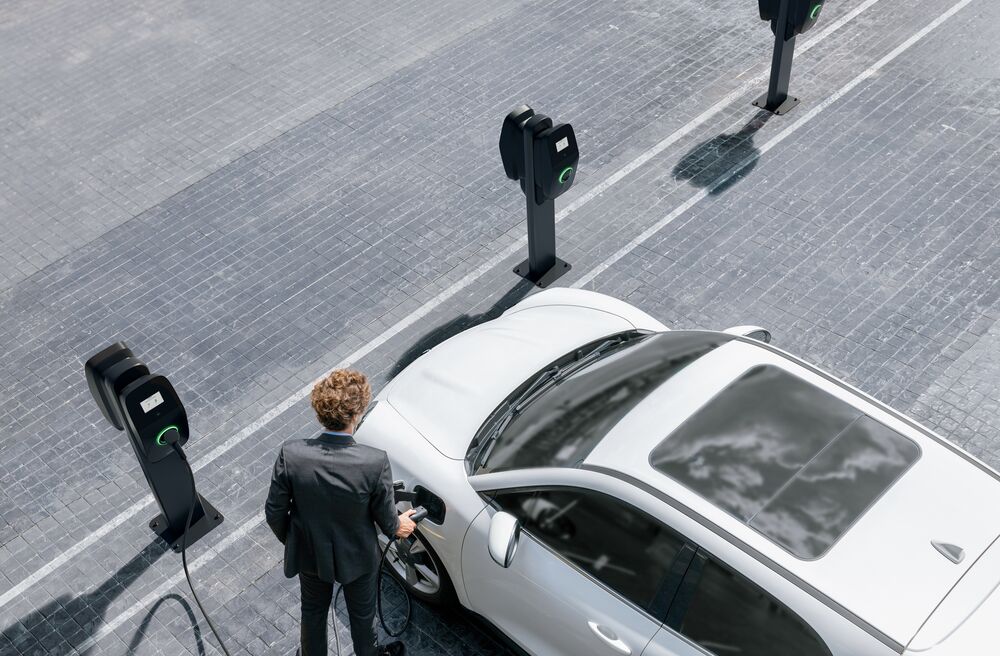Employee Adoption of Electric Vehicles

Electric vehicle sales reached a new peak in 2022, underscoring the growing shift towards sustainable transportation. If you've glanced at your office parking lot lately, chances are you've noticed more and more employees driving electric vehicles. The workplace is becoming a key destination for EV charging, with 34% of EV drivers frequently charging at work.
Meeting employee needs is crucial, but installing EV chargers comes with financial implications. How do you determine the cost of your installation and ensure maximum value? Let’s delve deeper into the costs associated with workplace EV chargers.
The Cost Breakdown of Workplace EV Chargers

When considering the costs of EV chargers, it’s essential to break them down into different categories. For clarity, we’ll examine:
- Initial Setup Costs
- Recurring Expenses
- Return on Investment (ROI) and Savings

Initial Costs of Workplace EV Charging Stations
Initial costs are often the first concern when it comes to EV chargers. These include the purchase price of the equipment, as well as the labor costs for surveying and preparing the site. A typical AC workplace charging station generally costs around €1,300 per charging port (excluding installation). The price varies depending on the charger’s features, such as charging speed, power output, socket types, cable length, and any smart charging capabilities.
Installation Costs of Workplace EV Charging Stations
Installation costs are often the largest portion of the total investment in EV charging. On average, AC charging station installations represent between 60-80% of the total costs, and they can quickly escalate to tens of thousands of euros if you’re installing a larger network of 5, 10, or 25 stations. Factors like location, complexity of the site, and regional wage differences can influence these costs. Additionally, explore government incentives or rebates that could help offset some of the initial expenses.

Recurring Costs of Workplace EV Charging Stations
While the initial setup represents the bulk of the cost, maintaining the chargers is equally important to ensure longevity. Although charging stations are durable, regular use can lead to wear and tear, necessitating occasional repairs or replacements.
Maintenance Costs of Workplace EV Charging Stations
Annual checks are advisable to preemptively address any issues and replace worn-out components like cables or sockets. Instead of sporadic maintenance visits, signing up for a maintenance plan with a reliable provider is often more cost-effective. This ensures consistent performance and minimizes unexpected repair costs.
Operational Costs of Workplace EV Charging Stations
Beyond maintenance, consider the ongoing operational costs, including electricity usage. Using the average electricity price of $0.15/kWh in the U.S. and €0.25/kWh in Europe, charging a Nissan Leaf (64 kWh) would cost approximately $8.68 (or €14.88), while a Tesla Model S (100 kWh) would cost around $14 (or €24). Assuming 10 chargers in use for an 8-hour workday, the total daily cost would be $86.80 (€148.80) for Nissan Leafs or $140 (€240) for Tesla Model Ss.
However, you don’t have to absorb the entire electricity cost. Various business models exist for offering EV charging at the workplace, such as charging employees a discounted rate and charging visitors the full price.

ROI and Cost Savings of Workplace EV Chargers
While installing EV chargers may initially seem costly, they can yield long-term benefits, including cost savings and even profitability, depending on the chosen business model. You can either offer free charging to employees or charge users a fee, with employees receiving discounts and visitors paying the full rate.
Adopting the second model, you might discover that after a few years, your EV chargers not only cover their costs but also generate a profit. Opening your charging stations to the public can position your business as a prominent charging hub, boosting visibility and potentially adding to your revenue stream.
If you operate a fleet of vehicles, installing EV chargers can lead to additional savings by enabling better cost management and control over charging expenses.

Workplace EV Charger ROI: An Example
To demonstrate how EV chargers can generate income, let’s consider an example. Suppose you’ve installed 5 charging stations at a cost of €16,500, including installation. Assume these chargers are used 5 days a week, with an average consumption of 25 kWh per session. They are open to both employees and visitors, who pay different rates.
- Employees enjoy a discounted rate of €0.45 per kWh,
- Visitors pay the full rate of €0.75 per kWh.
Assuming each charger is used once daily, with 3 employee sessions and 2 visitor sessions per day, how long will it take to recover your investment?
After deducting the EU average electricity cost of €0.25, you’d make a profit of €0.2 per kWh for employees and €0.5 per kWh for visitors. This results in a monthly profit of €375 from employee charging and €625 from visitor charging.
- 5 chargers * 5 days a week * 3 employee sessions * 25 kWh * (€0.2 - €0.25) = €375
- 5 chargers * 5 days a week * 2 visitor sessions * 25 kWh * (€0.5 - €0.25) = €625
Adding both profits, your total monthly profit would be €1,000. With these figures, you’d break even in slightly over 16 months, and any earnings beyond that would be pure profit for your organization.
Keep in mind that actual costs and profits may vary based on charger prices, usage levels, regional electricity prices, and pricing strategies. To get a more precise estimate of potential revenue, download our free EV charging revenue calculator.
*These figures are illustrative and do not reflect real-world costs.

Future-Proofing Your Workplace EV Charging Investment
While purchasing the charging station is a significant expense, it’s vital to think long-term to maximize your investment. Preparing your location for future expansion, such as adding more stations without rewiring, and upgrading power capacity as demand grows, is key.
Additionally, EV technology is rapidly evolving. Some critical considerations include EEBus compatibility, advanced load balancing, ISO 15118 standards, and OTA updates. These features ensure your chargers remain relevant and efficient as the industry progresses.
Workplace EV Chargers: An Investment in the Future
Electric mobility is here to stay, and the transition to EVs is inevitable. By installing workplace EV chargers, you’re not only supporting your employees but also positioning your organization for success in a greener future.
Providing EV charging can enhance employee satisfaction, align with sustainability goals, and even serve as a profitable venture. It can also attract top talent and contribute to employee retention by offering a desirable perk. To learn more about integrating EV charging into your business, check out our comprehensive guide. Ready to install EV chargers? Explore our EV charging solutions today.






